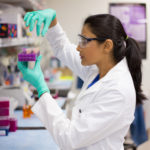
The immune system can spot a change in the identity of cancer antigens
A new study has identified novel mechanisms whereby T cells may be able to distinguish an emerging class of targets specifically increased on cancer cells (University of Birmingham, 2017). The study, carried out by researchers from the University of Birmingham and the University of Virginia, published in Oncotarget, focuses on how the immune system recognises … Continue reading The immune system can spot a change in the identity of cancer antigens
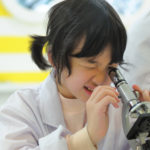
Parenting intervention using video feedback may reduce the severity of autism
The earliest autism intervention study in the world has suggested that a parenting intervention using video feedback for families with babies at family risk of autism may reduce the severity of emerging signs of autism (University of Manchester, 2017). This study is the first of its kind to work with babies in their first year … Continue reading Parenting intervention using video feedback may reduce the severity of autism
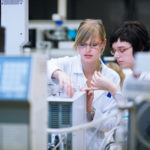
Swansea University’s smart bandages to be trialled “within 12 months”
Swansea University scientists have said bandages which can detect how a wound is healing and send messages back to doctors could be trialled within the next twelve months (BBC News, 2017). The bandages would use real time 5G technology to monitor what treatment is needed and also keep track of a patient’s activity levels. The … Continue reading Swansea University’s smart bandages to be trialled “within 12 months”

How to prevent tooth decay in children
A Cardiff University-led study has found applying fluoride varnish to children’s teeth is just as effective at preventing tooth decay as the alternative method of sealing teeth, and could save the NHS money (Cardiff University, 2017). The “Seal or Varnish?” study, in collaboration with Cardiff and Vale University Health Board Community Dental Service, treated just … Continue reading How to prevent tooth decay in children
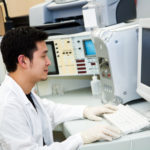
New hope for people with arachnophobia
New research by a University of Manchester psychologist could give new hope to people who are scared of spiders (University of Manchester, 2017). Dr Warren Mansell said rather than encouraging people with arachnophobia to face their fears, which is the current approach of many therapists, giving them control over how much they approach or avoid … Continue reading New hope for people with arachnophobia
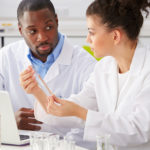
Study finds volunteering reduces the risk of dementia
A Swansea University academic is part of a team that has discovered that individuals who decide to retire from the workforce, but start to volunteer instead, report substantially less cognitive complaints and are far less likely to be diagnosed with dementia compared to retired workers who do not volunteer (Swansea University, 2017). Dr Martin Hyde … Continue reading Study finds volunteering reduces the risk of dementia

New insights into CMV, the leading viral cause of congenital birth defects
A study led by Cardiff University has revealed why CMV, a virus responsible for 1,000 birth defects each year in the UK, is so adept at evading the immune system (Cardiff University, 2017). The new findings, published in eLIFE, could help in the development of treatments for this and other currently untreatable viruses. By studying … Continue reading New insights into CMV, the leading viral cause of congenital birth defects

Launch of Wales Institute of Digital Information
The University of Wales Trinity Saint David (UWTSD) and the NHS Wales Informatics Service (NWIS) have joined forces to create the Wales Institute of Digital Information (WIDI) (University of Wales Trinity Saint David, 2017). Through WIDI, NWIS will have access to the talent of students and graduates by providing part-time employment opportunities, work placements and … Continue reading Launch of Wales Institute of Digital Information
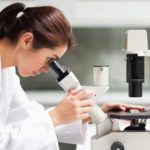
New treatment for antibiotic resistant bacteria and infectious disease
A new treatment pathway for antibiotic resistant bacteria and infectious diseases, with benefits for patients and healthcare providers, has been developed (University of Birmingham, 2017). Researchers from the University of Birmingham and Newcastle University found that the unusual approach of removing antibodies from the blood stream reduced the effects of chronic infections, the requirement for … Continue reading New treatment for antibiotic resistant bacteria and infectious disease
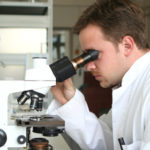
New insight into into the role of male hormones in fertility and polycystic ovary syndrome
Research led by University of Birmingham scientists in collaboration with Northwestern University in Chicago has provided fresh insight into the role of male hormones in supporting and disrupting the production of eggs by ovarian follicles (University of Birmingham, 2017). The study, published online in Endocrinology, measured for the first time the production of hormones by … Continue reading New insight into into the role of male hormones in fertility and polycystic ovary syndrome








